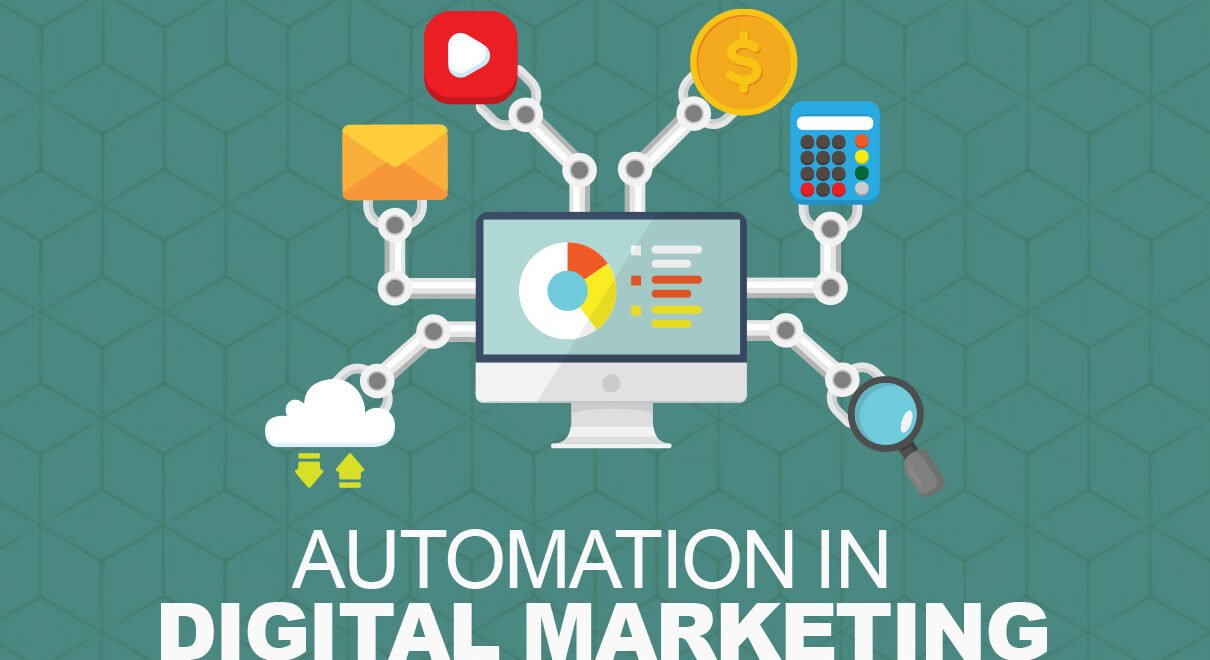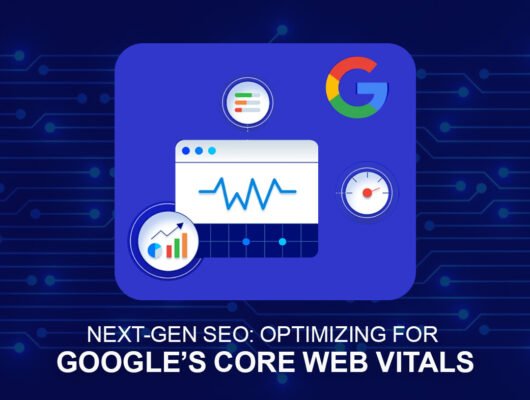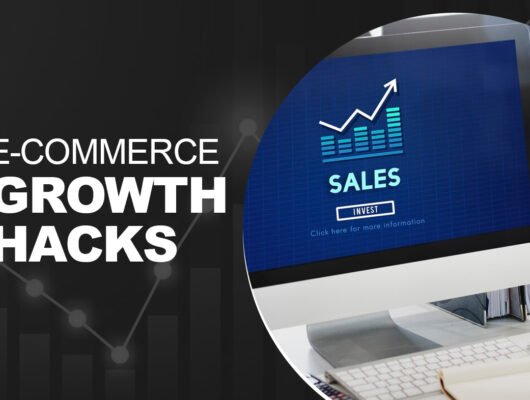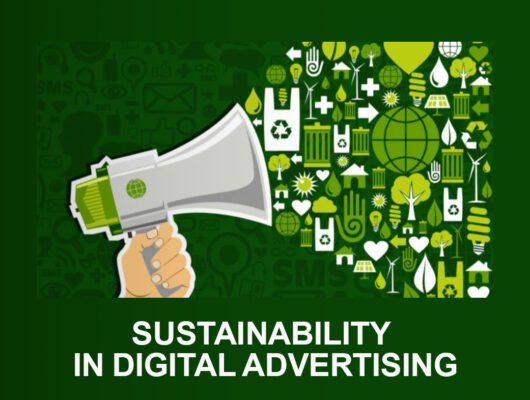Introduction to Automation in Digital Marketing
Automation in digital marketing refers to the use of technology to streamline and optimize marketing activities, allowing companies to engage with their audience in an efficient and timely manner. This practice encompasses various activities, including email campaigns, social media scheduling, and analytics reporting. The significance of automation has grown rapidly in today’s marketing landscape as brands seek innovative ways to connect with consumers who are inundated with information and options.
Changes in consumer behavior, driven by increasing reliance on digital platforms, have necessitated a shift towards automated solutions. Today’s consumers expect a seamless and personalized experience across various channels, making it essential for marketers to efficiently manage their outreach efforts. Automation empowers marketing teams to deliver targeted content quickly, ensuring that they remain relevant to their audience’s preferences and needs. Moreover, with the rise of 24/7 internet accessibility, the demand for real-time communication has made automation a crucial component of any successful strategy.
Technological advancements have played a pivotal role in driving the adoption of automation in digital marketing. The development of sophisticated tools and software has enabled marketers to analyze vast amounts of data and gain insights into consumer behavior. These insights inform decisions around content creation, advertisement placement, and overall engagement strategies, allowing companies to proactively adapt to changing market conditions. Furthermore, the integration of artificial intelligence into marketing processes enhances the efficacy of automation, enabling predictive analytics and customized consumer interactions.
Overall, embracing automation in digital marketing presents significant opportunities for businesses to enhance their operational efficiency and improve consumer engagement. The ongoing evolution of technology and consumer expectations underscore the importance of adopting automated solutions to thrive in a competitive marketplace.
Key Benefits of Automation in Digital Marketing
Automation in digital marketing offers numerous advantages that can significantly enhance marketing campaigns and overall business efficiency. One of the most prominent benefits is the improvement in efficiency. By automating repetitive tasks such as email marketing, social media posting, and data analysis, businesses can save time and focus on strategic initiatives. According to a study by HubSpot, companies that implement marketing automation see a 14.5% increase in sales productivity, highlighting the positive correlation between automation and improved operational efficiency.
Another essential benefit is cost savings. Automation tools can reduce the need for extensive human resources, helping organizations to lower overhead costs. With precise tracking and optimization capabilities, companies can also enhance their return on investment (ROI). Research shows that businesses using marketing automation can realize a 10% or greater increase in revenue within six to nine months of implementation. This underscores the long-term financial benefits automation brings to marketing strategies.
Enhanced accuracy is another critical advantage of automation in digital marketing. Automated systems can minimize human error and increase the reliability of data analysis, ensuring that marketing campaigns are based on accurate insights. Moreover, automation can facilitate better targeting and personalization by collecting and analyzing data more effectively, allowing marketers to deliver more relevant content to specific audiences. This targeted approach can further increase engagement and drive higher conversion rates.
Lastly, automation empowers businesses to scale their marketing efforts seamlessly. As a company grows, manual marketing processes can quickly become overwhelming. Automation allows for the simultaneous management of multiple campaigns across various channels without compromising quality. With tools that can adjust to increased demand, companies can maintain their marketing effectiveness while accommodating expansion. Thus, embracing automation in digital marketing is a strategic move that can substantially benefit organizations striving for success and sustainability in a competitive landscape.
Types of Automation Tools for Digital Marketing
In the ever-evolving landscape of digital marketing, automation tools play a vital role in streamlining processes and enhancing efficiency. Various categories of automation tools serve distinct functions, empowering marketers to optimize their strategies and achieve better results.
One prominent category is email marketing automation. This toolset allows marketers to create, schedule, and send targeted email campaigns with personalized content. Platforms like Mailchimp and ActiveCampaign enable users to set up automated responses based on user behavior, such as sign-ups or purchases, enhancing engagement and driving conversions.
Another essential type is social media automation. Tools such as Hootsuite and Buffer permit users to schedule posts across multiple platforms, analyze engagement metrics, and manage interactions with followers. By automating social media tasks, marketers can maintain a consistent online presence while focusing on content creation and strategy.
Customer Relationship Management (CRM) tools are critical for managing interactions with customers and prospects. Software like Salesforce and HubSpot CRM streamline processes by automating tasks such as lead scoring, tracking communications, and segmenting contacts, helping marketers nurture relationships more effectively.
Content Management Systems (CMS) are another category that facilitates automation in managing and distributing digital content. Platforms like WordPress and Drupal allow marketers to automate aspects of content publication and updates, ensuring that relevant content reaches the target audience promptly.
Lastly, analytics solutions are essential for measuring the effectiveness of marketing campaigns. Tools like Google Analytics and Adobe Analytics automate data collection and provide valuable insights, enabling marketers to make informed decisions based on performance metrics and user behavior.
In summary, the diverse range of automation tools available for digital marketing enables marketers to enhance their strategies, reduce manual tasks, and ultimately drive better results in their campaigns.
Implementing Automation Strategies: A Step-by-Step Guide
In the rapidly evolving landscape of digital marketing, implementing automation strategies has become essential for businesses seeking efficiency and growth. The first step in this process is identifying clear and specific marketing goals. These objectives could range from increasing lead generation to improving customer engagement or streamlining email marketing campaigns. Defining goals not only provides direction but also allows for measuring the success of automation initiatives.
Once goals are established, the next step is selecting the appropriate automation tools that align with these objectives. There are numerous platforms available, including Customer Relationship Management (CRM) systems, marketing automation software, and social media management tools. Each tool has its unique features, so it is crucial to research and choose the ones that best fit the specific needs of the organization.
After selecting the tools, integration with existing systems becomes paramount. This phase involves ensuring that the new automation software can seamlessly connect with the current digital infrastructure. Smooth integration is key to avoid disruptions and to facilitate the sharing of data between systems, resulting in a more cohesive marketing strategy.
Setting up workflows is the next significant step. Workflows dictate how automated processes will interact and operate within the marketing strategy. This includes establishing triggers, conditions, and actions that define how the automation will function. Clear documentation of these workflows is essential for both monitoring and refining the processes over time.
Finally, best practices for monitoring and optimizing automated processes should be established. Continuous assessment allows marketers to make informed adjustments to improve effectiveness and efficiency. Regularly analyzing metrics such as open rates, click-through rates, and conversion rates can provide insights into areas for enhancement.
Challenges in Automation and How to Overcome Them
Marketing automation has transformed the landscape of digital strategies, offering efficiency and scalability. However, businesses encounter various challenges when implementing automated marketing solutions. One predominant issue is technology integration. Organizations often utilize disparate systems that do not communicate effectively with each other, which can lead to data silos and operational inefficiencies. To address this challenge, marketers should prioritize selecting automation tools that offer seamless integration capabilities with existing platforms. Conducting a thorough assessment of current technology and ensuring compatibility is essential for smooth operation.
Another significant concern arises from data privacy. As automation relies heavily on data collection and analysis, businesses must navigate increasingly stringent regulations surrounding data privacy, such as GDPR and CCPA. Failure to comply can result in legal repercussions and loss of consumer trust. To mitigate this risk, organizations must adopt transparent data practices, including obtaining explicit consent from users and conducting regular audits of their data management processes.
Furthermore, maintaining personal customer relationships can be a challenge in an automated environment. Customers may feel neglected if interactions are primarily managed through automated systems. To counteract this, marketers should find a balance between automation and personalization. This can be achieved by leveraging automation to handle routine tasks while reserving human intervention for more complex customer interactions. Implementing tiered responses based on customer engagement levels can also create a more personalized experience.
Lastly, there is a potential risk of over-dependence on automation tools, which may lead to a lack of critical thinking and creativity in marketing strategies. It is crucial that marketers remain engaged in the strategic process and continue to refine their approaches based on insights derived from both automated data analysis and personal intuition. Ongoing training and investment in professional development can help counter this challenge, fostering a culture of strategic innovation within the organization.
The Role of AI and Machine Learning in Marketing Automation
The landscape of marketing is undergoing a significant transformation, largely driven by advancements in artificial intelligence (AI) and machine learning technologies. These innovations are not only reshaping conventional strategies but also enhancing the capabilities of marketing automation tools, allowing businesses to engage with consumers in more meaningful ways. AI-driven solutions are becoming indispensable in delivering personalized experiences that resonate with individual preferences and behaviors.
One of the primary ways AI and machine learning enhance marketing automation is through personalization. With extensive data analysis capabilities, these technologies can identify customer patterns and preferences, enabling businesses to tailor their communications and offers. For instance, AI algorithms analyze user interactions and segment audiences based on behavior, allowing for targeted marketing campaigns that significantly improve conversion rates. As a result, businesses can leverage machine learning to automate content delivery, optimizing it for each user based on real-time insights.
Moreover, AI-powered analytics tools offer deeper insights into marketing performance. By examining vast datasets, machine learning algorithms can uncover trends and predict future behaviors, empowering marketers to make data-driven decisions. This analytical prowess is crucial for adjusting strategies in a dynamic market environment. Businesses can utilize these insights to refine their marketing automation, ensuring they allocate resources effectively and capitalize on emerging opportunities.
As the role of AI and machine learning continues to expand, the implications for future marketing automation strategies are profound. Marketers will increasingly rely on intelligent systems to enhance customer interactions, streamline workflows, and achieve superior outcomes through data-driven optimization. Embracing these technologies will not only redefine the marketing landscape but also establish a more personalized and efficient marketing ecosystem.
Measuring the Success of Automated Marketing Campaigns
In the realm of digital marketing, measuring the success of automated marketing campaigns is pivotal for optimizing future strategies. Marketers must establish key performance indicators (KPIs) to assess their efforts effectively. Among the most critical metrics is the conversion rate, which indicates the percentage of users who complete a desired action, such as making a purchase or signing up for a newsletter. By monitoring this metric, marketers gain insights into the effectiveness of their automated workflows and can identify which strategies yield the highest conversion rates.
Engagement metrics represent another essential component of measuring success in automated campaigns. This includes tracking email open rates, click-through rates, and social media interactions. High engagement metrics suggest that the content resonates with the target audience, while lower rates may signal the need for adjustments in messaging or targeting. Utilizing A/B testing can further refine these engagement strategies by comparing different versions of content to ascertain the most effective approach.
Furthermore, assessing cost per acquisition (CPA) is crucial for understanding the economic impact of automated marketing efforts. This metric calculates the total cost associated with acquiring a new customer and can help marketers determine if their campaigns are cost-effective. When combined with the return on investment (ROI), which measures the profitability of marketing initiatives, marketers can gain a comprehensive view of campaign performance. Monitoring both CPA and ROI allows for strategic budget adjustments based on the realized value of different marketing tactics.
Utilizing advanced analytics tools, such as Google Analytics and customer relationship management (CRM) platforms, can greatly facilitate the tracking of these metrics. These tools provide valuable data that help marketers gauge the effectiveness of their automated campaigns and make data-driven decisions moving forward.
Case Studies: Successful Automation in Action
Automation has revolutionized digital marketing strategies in various sectors, with numerous case studies showcasing its effectiveness. One noteworthy example is the online retailer, Zappos. Before implementing automation, Zappos faced challenges in managing customer inquiries during peak seasons, which often led to delayed responses and customer dissatisfaction. By integrating a customer service automation system, they streamlined their operations. Chatbots and automated email responses were introduced to handle common queries, significantly reducing response times. The result was a marked improvement in customer satisfaction scores and an increase in repeat purchases, demonstrating the power of automation in enhancing customer relationship management.
Another compelling case is that of HubSpot, a marketing, sales, and service software provider. Prior to automation, HubSpot’s content marketing team struggled with the time-consuming process of tracking content performance and audience engagement. They adopted an automated reporting tool that aggregated data from various digital channels. This allowed the team to gain insights and adjust their marketing strategies quickly. The outcome was impressive; not only did they reduce the time spent on analysis, but they also experienced a 30% increase in lead generation within six months of automation implementation. This is a prime illustration of how automating digital marketing processes can enhance efficiency and effectiveness.
A final example can be drawn from the travel industry, specifically Airlines such as KLM. Faced with the challenge of managing customer inquiries across multiple channels, KLM turned to automation. By utilizing AI-powered chatbots, they effectively handled a significant portion of customer interactions. This implementation not only sped up response times but also freed up their customer service representatives to tackle more complex issues. Consequently, KLM reported a noticeable increase in customer engagement and satisfaction, along with a reduction in operational costs. These case studies collectively highlight that embracing automation in digital marketing is not merely a trend; it is a strategic necessity for businesses aiming to thrive in a competitive landscape.
The Future of Automation in Digital Marketing
The landscape of digital marketing is undergoing rapid transformation, significantly influenced by advancements in automation technologies. As brands increasingly rely on data-driven strategies to refine their marketing efforts, the arrival of sophisticated automation tools signifies a notable evolution. These tools not only streamline repetitive tasks but also enhance the precision of targeting and personalization, enabling marketers to connect with their audiences more effectively. As we look toward the future, it is essential to consider how these technologies will shape marketing practices and the role of strategists in adapting to these changes.
One prominent trend is the integration of artificial intelligence (AI) within marketing automation. AI is expected to fuel predictive analytics, allowing marketers to anticipate consumer behavior and preferences with greater accuracy. By leveraging machine learning algorithms, brands can dynamically adjust their campaigns in real-time, leading to more relevant and impactful communication with consumers. This shift towards a more predictive approach will not only optimize resource allocation but also foster deeper customer relationships.
Furthermore, as digital transformation continues to gain traction across industries, the demand for seamless omnichannel experiences will rise. Automation will play a critical role in ensuring consistency and coherence across various consumer touchpoints, from email marketing to social media engagements. Marketers will need to embrace innovative solutions that enable them to deliver personalized content at scale, while maintaining a unified brand voice.
In this evolving landscape, the significance of upskilling cannot be overstated. Marketers must remain agile and proactive, continuously updating their knowledge and skills to keep pace with emerging trends in automation and AI technologies. The future of automation in digital marketing will undoubtedly be characterized by rapid change; hence, the ability to adapt quickly will be essential for success. As brands and marketers gear up for these transformations, staying informed and agile will be vital for harnessing the full potential of automated solutions in their marketing strategies.







